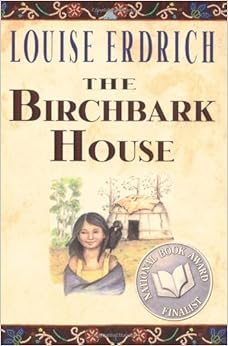Master, Irfan (2012) A Beautiful Lie Chicago: Alfred Whitman.

Opening lines: "Something was wrong." I could sense it, but I couldn't put my finger on what it was. It reminded me of when my father would jerk his heard this way and that, sniffing the air like an agitated rooster."
Bilal's father is dying. At the same time, his country, India, is moving toward partition into two separate nations of India and Pakistan. As the anger and tension in Bilal's town increases, Bilal makes a decision he will make sure that his father never learns of unrest. All Bilal has to do is make sure no one visits his father and that his father does not see any newspapers. But how can he do that while still going to school and managing the house. That is where his firends come in. Together they will keep the world away from Bilal's father. But, of course, the world will change, whether they want it to or not.
Along the way, we meet the other members of Bilal's community, the caring teacher, the selfless older doctor, the pompous religious men, the blind man who somehow seems to see the world more completely than anyone else, and the boys (including Bilal's older brother) who seem to be waiting for the slightest chance to set fire to the world and burn it to the ground.
I found the ending of this book to be very moving, but you really need to read the epilogue as well. This book is probably ideal for middle school and high school readers, though, of course, sharp younger readers may wish to give it a shot. There is nothing here that would cause the book to be challenged, unless it would be the not-entirely-charitable portrayal of the town's religious men, or perhaps the violence of the riots. But all those are overcome by the message of the book, that even in a time of change and violence, there is always hope, and more than that, love.
Erdrich, Louise (1999) The Birchbark House New York: Scholastic.

Opening line: "The only person left alive on the island was a baby girl."
Here begins the story of Omakayas, who lives with her family on the Island of the Golden-Breasted Woodpecker some time around 1947. As she grows up, she must deal with her annoying younger brother, with her parents expectations of her, and with her father's long absences -- problems that sound familiar to 21st century Americans. Omakayas must also learn to handle bears, diseases that the white men have brought that could wipe out their whole family, starvation, hard winters, and how to discover what she can contribute to her community.
Like many stories based on truth, the plot here is more episodic than sweeping, and the joy and mystery of the novel seems more contained in small moments than in dramatic battles, death-defying rescues, or startling revelations, yet those small moments, when Omakayas befriends a small bird, when the family moves to the summer rice camp, and when the winter ends or father returns home, or when Omakayas figures out what she is the best at.
There is a glossary in the back, but some of the vocabulary might prove frustrating for younger readers. Having said that, I think fourth grade and up would enjoy this one. I cannot imagine anyone objecting to this book, unless it would be someone who thinks that the white settlers are not praised for bringing the trappings of civilization as well as smallpox. This might make a fine read aloud.
No comments:
Post a Comment